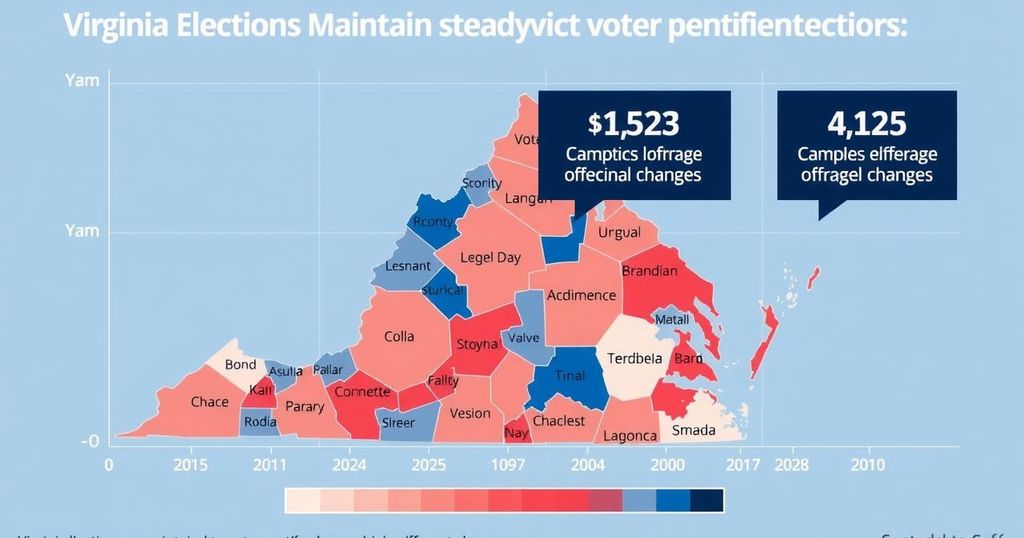Virginia’s recent special elections resulted in no significant shift in voter sentiment, with Democrats retaining control in two left-leaning districts. This outcome sets the stage for political dynamics in the 2025 governor’s race and raises questions about Republican Governor Glenn Youngkin’s legislative priorities amid a divided government.
The recent special elections in Virginia have revealed stability in voter sentiment, as Democrats successfully defended their slim majority in the state assembly, winning in two left-leaning districts. The elections attracted national attention amidst speculation about their implications for the upcoming governor’s race and potential presidential contenders, including Republican Governor Glenn Youngkin. With the legislature poised to reconvene, the dynamics of a divided government could complicate Youngkin’s final year in office, particularly regarding his budget proposals aimed at providing tax relief to workers.
Virginia’s political landscape remains under close scrutiny, especially following significant national events such as the 2020 Presidential election. The state’s unique electoral schedule, with races occurring in odd-numbered years, highlights its role as a barometer for national political trends. The recent elections provided insights into current voter preferences but also set the stage for a contentious gubernatorial race in 2025 as incumbents face off against new challengers.
In summary, the recent special elections in Virginia indicate a continuation of the current political dynamic, with Democrats maintaining control of the state legislature. As Governor Youngkin navigates his term in the face of a Democratic majority, the upcoming gubernatorial race is expected to draw national interest and significant funding from both parties, aiming to reflect broader electoral trends. The implications of this political backdrop will undoubtedly play out in the forthcoming legislative sessions and the 2025 governor’s race.
Original Source: abcnews.go.com






